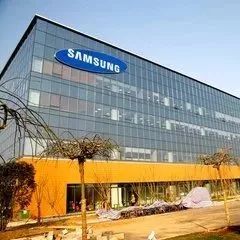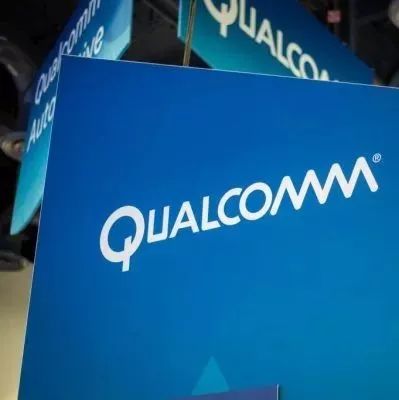确认,高通收购NXP交易将获欧盟放行

两位知情人士透露,继并购双方对合并后可能增加成本或排除竞争对手表示担心后,欧洲反垄断机构有望对这笔交易做出明确表态。
去年6月,欧盟委员会曾担心并购可能损害竞争,并为此展开深入调查。
“由于半导体实际应用于几乎所有的电子设备,我们要依靠他们,”欧盟竞争委员会专员玛格丽特·韦斯塔格(Margrethe Vestager)当时说。“利用这项调查,我们将确保消费者继续从安全的、创新的、价格具有竞争力的产品中获益。”
欧盟认为,合并后的实体企业将排除竞争对手,增加专利使用费。他们也担忧两家公司将高通的“基带”无线处理器与恩智浦的“近场通信”芯片(NFC)和“安全因素”捆绑在一起,用于无线移动支付系统。
高通此前表示,恩智浦可提供互补性资产,特别是用在“物联网”的NFC和芯片。
该公司承诺,将在许可证、知识产权和系统要素等方面获得批准。
布鲁塞尔方面的这一举动还可以支持高通对抗博通,后者在去年年底发起了一场运动,收购美国芯片制造商。恩智浦将参与投标,投标将面临更严格的监管,因为这家荷兰公司和博通都拥有WiFi芯片业务。
欧盟委员会和高通均拒绝置评。
高通公司正被卷入一系列公司和法律纠纷。其中包括被其最大客户之一的苹果公司指控涉嫌反竞争行为,与此同时,欧盟也在对该公司的两项定价政策展开调查。
近年来,该公司也因专利权问题,在中国、韩国和台湾收到过反垄断罚单。
尽管在监管问题上面临困境,高通仍在寻求保持业务正常运营,同时,设法在智能手机之外实现营收多元化。上个月,该公司一边应对法律纠纷,一边推出了骁龙845处理器,这是该公司开发的下一代芯片,将提供人工智能功能,标志着高通公司已进入虚拟现实和增强现实等新兴领域。
近年来高通进入汽车电子的决心比以往任何时候都坚决,这单交易完成之后,高通终于吃下了一颗定心丸。
恩智浦的收购成功后,将会重塑高通的产品线。2015年恩智浦以118亿美元的价格收购了飞思卡尔,成为全球最大的汽车半导体供应商。如果结合恩智浦在汽车电子领域的实力,以及高通在通信芯片与系统设计上的技术,有望整合出更优的产品线。
从NXP 的产品线来看,偏向应用各种垂直产业,在产品策略选择上,刚好就是Qualcomm 所欠缺。举例而言,车联网大家都在谈,而在未来进行式中,市场上能有多少产品用到Qualcomm 和NXP 的解决方案,就不难看出为何会有这宗购并的产生。
除汽车电子以外,恩智浦还有宽阔的产品线。根据近日召开的“恩智浦FTF2016”上的展示,恩智浦的业务范围覆盖汽车、安全芯片、射频、物联网和移动支付等行业。由于两家公司产品线存在较强的互补性,并购能大幅提振盈利能力,业界一直有传言称高通会收购恩智浦。投资公司SanfordC.Bernstein发布的投资报告中便曾提及高通收购恩智浦的可能性。而据瑞斯根估计,并购恩智浦可使高通获利增加30%,还不算并购后可省下的成本。
新的高通巨头,我们还要假以时日才能看到。
附:金融时报原文
Qualcomm set to win EU approval for $47bn deal for NXP
Brussels is set to approve Qualcomm’s $47bn takeover of NXP next week, greenlighting the chip industry’s largest deal and strengthening the US company’s defence against a hostile takeover bid by rival Broadcom.
European antitrust regulators are expected to clear the acquisition after the two companies addressed concerns the combined group would increase costs or exclude rivals, said two people familiar with the case.
The European Commission last June expressed concerns that the tie-up might harm competition and opened an in-depth investigation into the takeover.
“As semiconductors are used in practically every electronic device, we are dependent on them,” Margrethe Vestager, EU competition commissioner, said at the time. “With this investigation, we want to ensure that consumers will continue to benefit from secure and innovative products at competitive prices.”
The EU believed that the combined entity could exclude rival suppliers and increase royalties. It was also anxious that the companies could bundle Qualcomm’s “baseband” wireless processors with NXP’s “near field communication” chips (NFC) and “secure elements”, which together are used in wireless mobile payment systems.
Qualcomm has previously said NXP provides complementary assets, specifically in NFC and chips used in the ‘internet of things’.
The company’s commitments to win approval include assurances over licences, intellectual property and system elements.
Brussels’ move could also bolster Qualcomm’s battle against Broadcom, which launched a campaign to buy the US chipmaker late last year. That bid would face greater regulatory scrutiny with NXP involved, as the Dutch company and Broadcom both have WiFi chip businesses.
The Commission and Qualcomm both declined to comment.
Qualcomm is embroiled in a number of corporate and legal battles. These include a fighting allegations of anti-competitive behaviour from Apple, one of its largest customers, as well as two EU investigations into historical pricing policies.
The company has also been hit by antitrust fines over licensing fees in China, South Korea and Taiwan in recent years.
Despite its regulatory woes, Qualcomm is seeking to maintain a business-as-usual approach as it seeks to diversify its revenues beyond smartphones. It launched the Snapdragon 845 processor, its next generation chip that will offer artificial intelligence capabilities, last month despite its legal battles as it looks to new sectors such as virtual and augmented reality.
-

- 半导体行业观察
-

- 摩尔芯闻
最新新闻
热门文章 本日 七天 本月
- 1 东方晶源YieldBook 3.0 “BUFF叠满” DMS+YMS+MMS三大系统赋能集成电路良率管理
- 2 NVIDIA重磅出击:三台计算机助力人形机器人飞跃
- 3 奕行智能(EVAS Intelligence)完成数亿元A轮融资,加速推出RISC-V计算芯片产品,共同助力新时代到来
- 4 智能驾驶拐点将至,地平线:向上捅破天,向下扎深根





